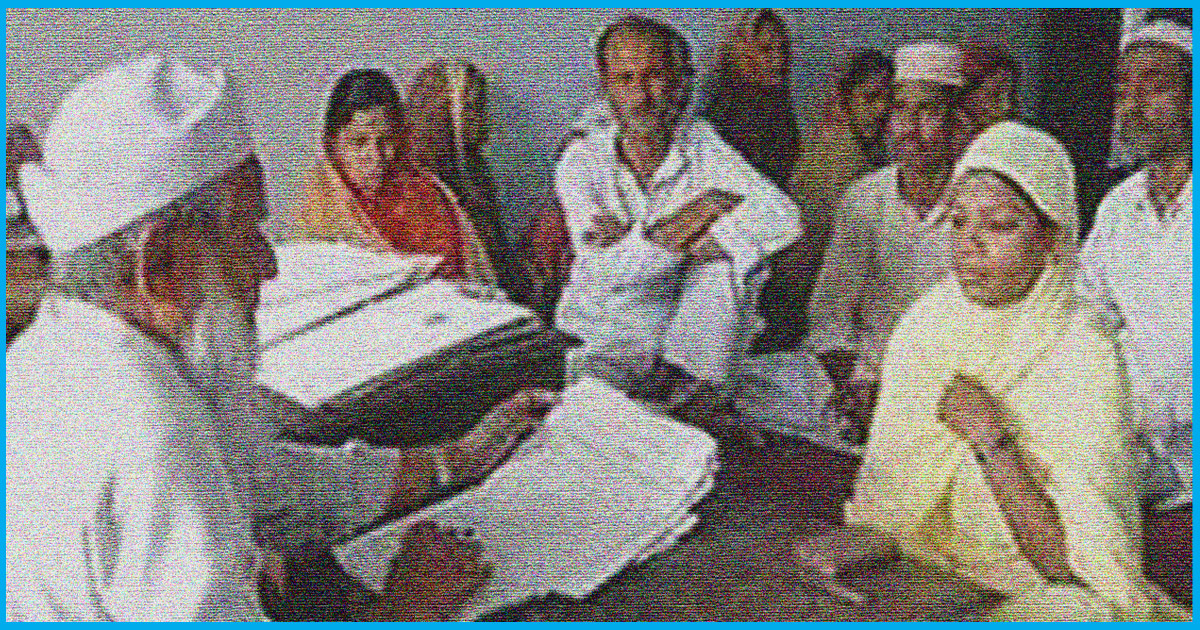
Muslim Personal Law Board To Expand Sharia Courts All Over India To Mediate On Family Disputes
11 July 2018 1:29 PM GMT
All India Muslim Personal Law Board (AIMPLB), India’s highest decision-making body on Muslim affairs has planned to open Darul-Qaza or Sharia courts in all the districts of the country. The meeting of which is scheduled on 15 July 2018.
There are 40 Sharia courts in Uttar Pradesh as of now. Senior AIMPLB member Zafaryab Jilani told PTI, “At present, there are 40 such courts in Uttar Pradesh. We plan to open one such court in every district of the country. The objective of Darul-Qaza is to resolve matters in light of Sharia laws instead of going to other courts”, as reported by News18.
He further added that the board is also of the view that the increased number of these Sharia courts will encourage people to approach them for disputes arising out of family, including Nikah, Talaq and property matters.
This move had drawn major flak from several quarters, including parties like the Congress and the BJP. Senior Congress leader Rajeev Shukla said that the idea of Sharia courts is “completely against the constitution”. Even BJP leader and Member of Parliament Subramanian Swamy said, “ It’s (the Sharia court plan) a de-facto way of dividing the country and creating secession. There is only one court and one law. Constitution is the guiding force and anything outside it will not be acceptable.” He further added that anybody makes attempts in this direction be arrested under the national security act.
However, this decision has received the backing of a Congress leader and Minority Affairs minister in ZA Khan of Karnataka, who said, “It’s a good proposal, will help solve our problems. There is only one law in India but this is only meant to bring awareness among the Muslims”, ANI quoted Khan as saying.
The AIMPLB would soon be conducting a meeting. Around Rs 50,000 is spent on running a Sharia court and ways to generate resources to meet the cost will be discussed in this meeting.
What are Sharia Courts?
Sharia courts or Darul Qaza are institutions where Muslims can go to resolve or ask for mediation in cases related to marriage, divorce and inheritance, in accordance with the Islamic law. Darul Qaza or the Sharia courts have been in India for decades. It is to be noted that these court work under the arbitration act. Under the Indian laws, Darul Qaza finds no legal sanctity. Individuals have the freedom to approach civil or criminal court if the decision of these Sharia courts are deemed inadequate. These courts in no way are parallel to Indian courts.
Jilani, reinstating the same, said, “This is not a court. We call it Darul-Qaza where a Qazi sits and listens to people’s disputes. Both parties approach the Qazi and he tests them about Shariat. He tries to resolve their issue and if they agree they do not approach Civil Court. There is no conflict between Civil Courts and Darul-Qaza.”
Supreme Court in 2014, while giving its verdict on the Vishwa Lochan Madan case said that the Sharia courts have no legal sanction and hence their fatwa or diktat isn’t obligatory. Delhi-based advocate Vishwa Karma Madan had approached SC in 2005 where he brought a case to the court’s case. As per this case, a woman was asked by the Sharia court to leave her husband and children and live with her father-in-law who had raped her. The bench comprised of Justice CK Prasad and Justice Pinaki Chandra Ghose observed that Islamic judges who decide on religious laws can only pass a verdict in cases were the individuals voluntarily submit them, the livelaw had reported.
Supreme court also observed that it is a matter of faith for people to approach Sharia courts and a blanket ban on them is not possible.
“Don’t be over dramatic,” the court told the petitioner then, adding, “We will come to her rescue. You are assuming all fatwas are irrational. Some fatwas may be wise and may be for general good also. People in this country are wise enough. If two Muslims agree for mediation, who can stay it? It is a blend of arbitration and mediation.”
Also read, Eminent Indian Citizens Give A Draft For Uniform Civil Code To Law Panel, Know About It
 All section
All section













